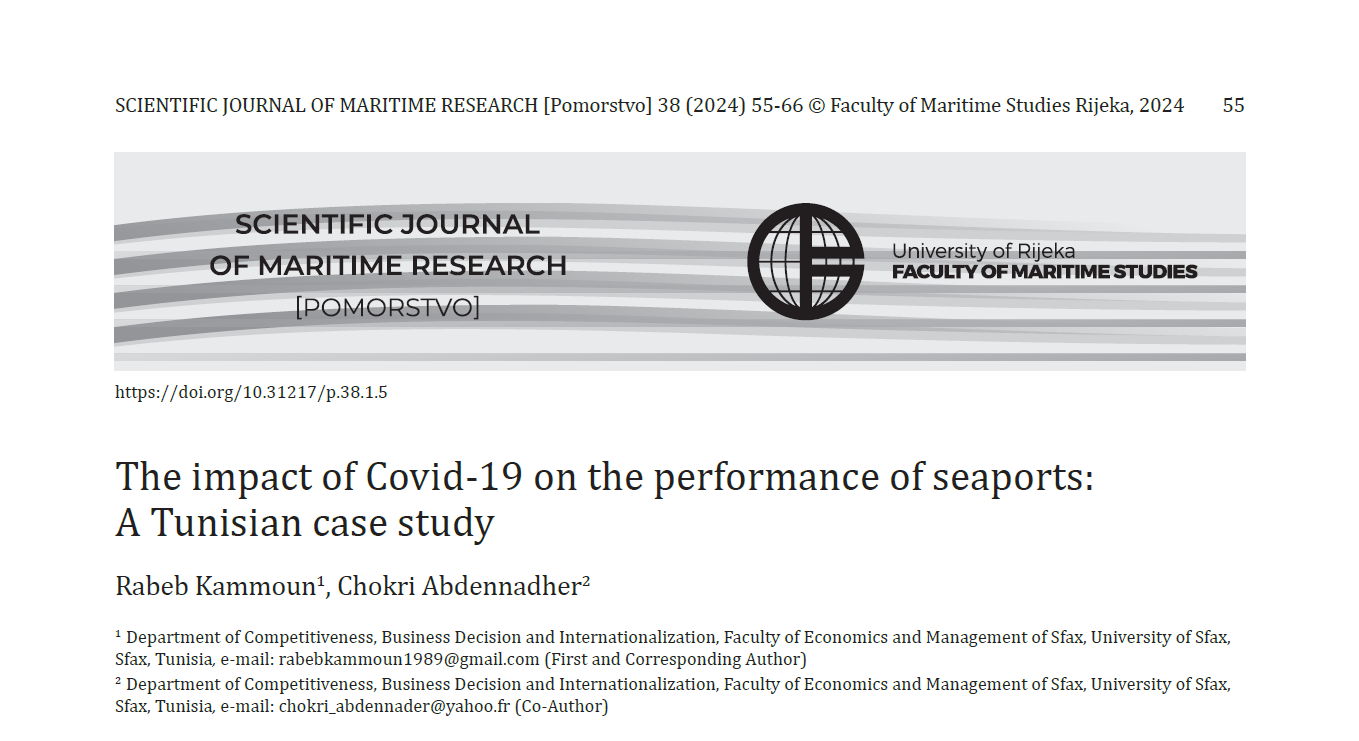The impact of Covid-19 on the performance of seaports: A Tunisian case study
Keywords:
COVID-19 pandemic, Tunisian seaports, Port performance, Stringent governmental control indexAbstract
The COVID-19 outbreak had a serious effect on the global economy, particularly, on the volume of port trade. This article was intended to investigate the impacts of the economic landscape, severity of the outbreak, and governmental control measures on the import and export goods of eight seaports in Tunisia. To achieve this, panel regression models were employed, utilizing a time series dataset spanning from the first quarter of 2020 to the third quarter of 2022. Based on the attained results, the preventive measures and stringent governmental control index and the cumulative number of confirmed cases have negative impact on the imported and exported goods, though the exported goods have been rather severely affected by the pandemic. At the economic level, the industrial added value has been discovered to be significantly and positively correlated with the imported and exported cargos respective throughputs, while GDP turned out to be significantly and negatively correlated with imported and exported goods. Such findings could be of great help to the shipping companies, port operators as well as the governmental authorities to shift strategies and opt for appropriate measures likely to help in coping with any potential effects of similar crises.

Downloads
Published
Issue
Section
License
Copyright (c) 2024 Rabeb Kammoun, Chokri Abdennadher

This work is licensed under a Creative Commons Attribution-NonCommercial-NoDerivatives 4.0 International License.
Scientific Journal of Maritime Research understands the need for authors to disseminate and maximize the impact of their research. When submitting an article for publishing in Scientific Journal of Maritime Research, it implies that the Corresponding Author transfers, with the consent of all Coauthors, the copyright ownership in the referenced submission, including all versions in any format now known or hereafter developed, to the Scientific Journal of Maritime Research.
Copyright protects your original work and research material and prevents others from using it without your permission. Others will be required to credit you and your work properly, thus increasing its impact. Should your submission be rejected or withdrawn prior to acceptance for publication by Scientific Journal of Maritime Research, this transfer will be null and void.
Authors, users or readers of an article need clear instructions on how they can use the article. Scientific Journal of Maritime Research uses the Creative Commons Attribution-NonCommercial-NoDerivatives (CC-BY-NC-ND) 4.0 International License, which governs the use, publishing and distribution of articles by authors, publishers and the wider general public.
The authors are allowed to post a digital file of the published article, or the link to the published article (Scientific Journal of Maritime Research web page) may be made publicly available on websites or repositories, such as the Author’s personal website, preprint servers, university networks or primary employer’s institutional websites, third party institutional or subject-based repositories, and conference websites that feature presentations by the Author(s) based on the published article, under the condition that the article is posted in its unaltered Scientific Journal of Maritime Research form, exclusively for non-commercial purposes.




